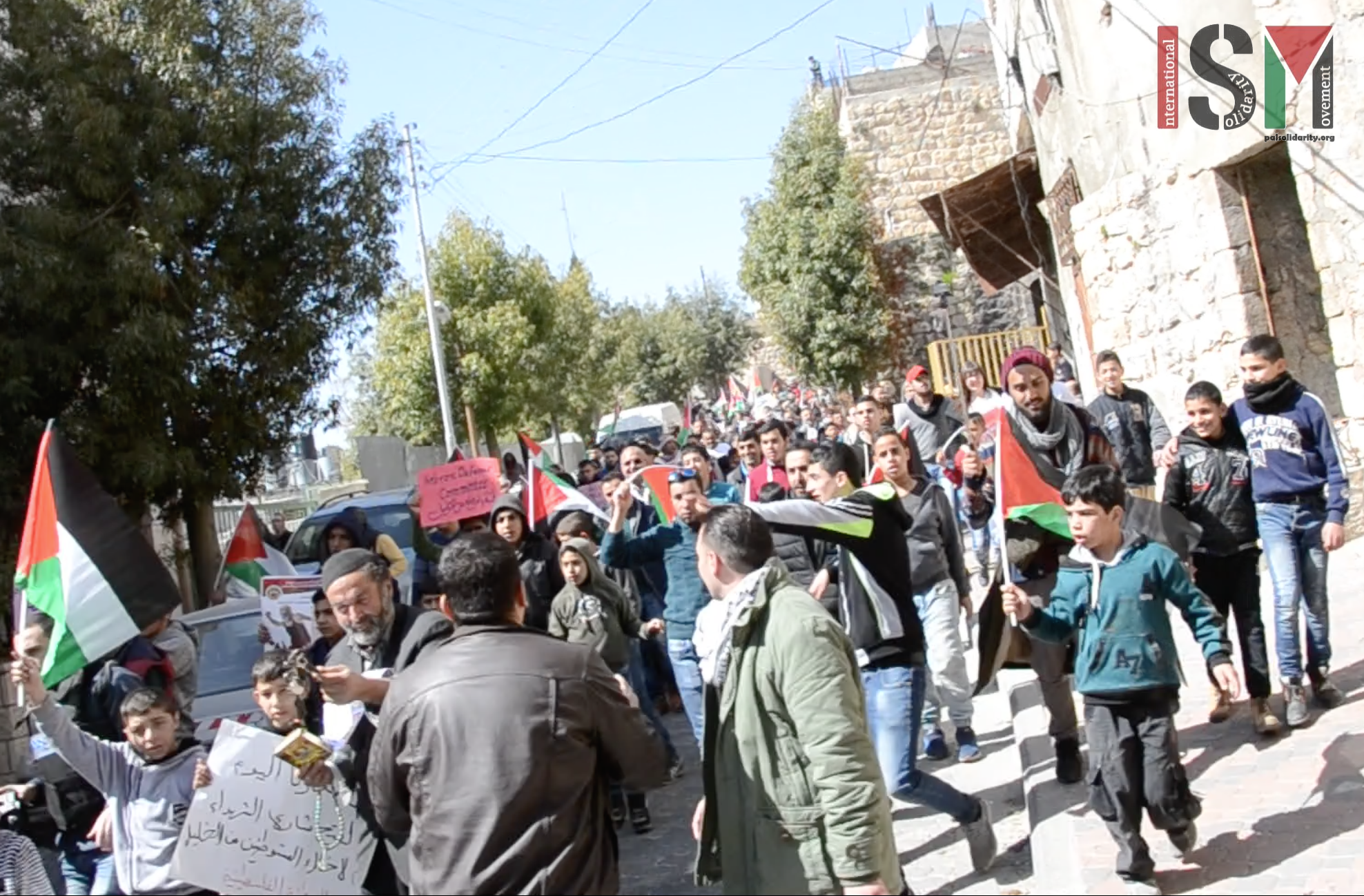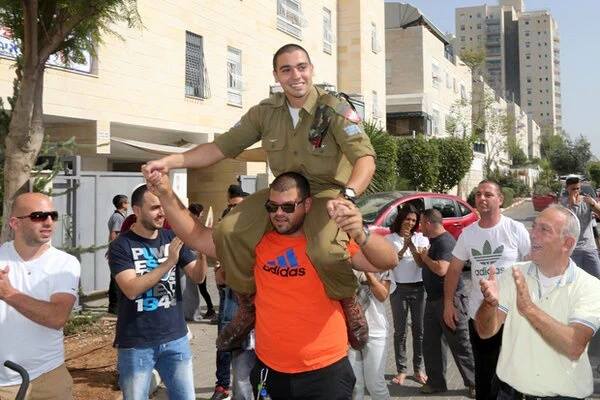Category: Features
-
Susya faces demolition for the eighth time
27th February 2017 | International Solidarity Movement, al-Khalil team | Susya, occupied Palestine The village of Susya in the south Hebron hills faced complete demolition again yesterday as the Israeli court, and the villagers, waited for the Israeli government to announce its plan for demolition. The Israeli government asked the court for a 48 hour…
-
Israeli army attacks peaceful demonstration in Hebron and injures protesters : eye-witness accounts
24th February 2017 | International Solidarity Movement, al-Khalil team | Hebron, occupied Palestine On 24th February several hundred people joined together for a demonstration in al-Khalil (Hebron) in occupied Palestine. Palestinians, Israelis and international activists protested together against the occupation of Shuhada Street and Tel Rumeida in the heart of the city, closed by the military…
-
Elor Azaria verdict: a personal view
22nd February 2017 | International Solidarity Movement, al-Khalil team, | Hebron, occupied Palestine Yesterday the Israeli soldier Elor Azaria was sentenced to 18 months in prison for the extra-judicial killing of Abdel Fattah al-Sharif, which happened last year in Hebron. Everybody in Hebron was waiting for the sentence. Everybody knew by one o’clock what it was.…


